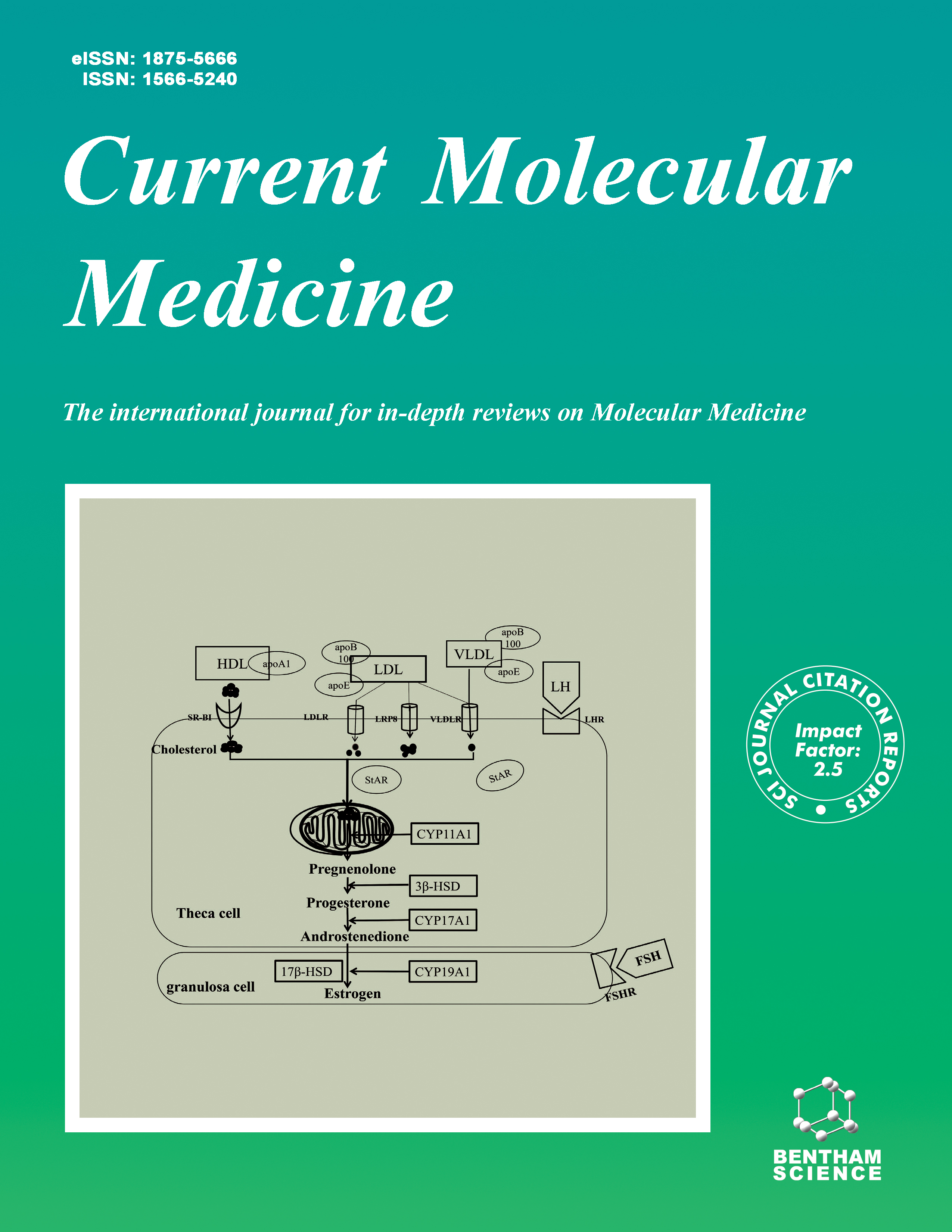- Home
- A-Z Publications
- Current Molecular Medicine
- Previous Issues
- Volume 1, Issue 5, 2001
Current Molecular Medicine - Volume 1, Issue 5, 2001
Volume 1, Issue 5, 2001
-
-
Linking CD4 Gene Expression and T Cell Development
More LessBy G. SiuThe control of CD4 gene expression is essential for proper T lymphocyte development. Signals transmitted from the T-cell antigen receptor (TCR) during the selection process are believed to be linked to the regulation of CD4 gene expression during specific stages of T cell development. Thus, the control CD4 gene expression is an ideal model system for studying the molecular mechanisms that drive T cell development. Here, I Read More
-
-
-
Anti-CD45RB Monoclonal Antibody-Mediated Transplantation Tolerance
More LessAuthors: P.P.W. Luke, C.A. OBrien, A.M. Jevnikar and R. ZhongCurrently, lifelong immunosuppression is required for organ transplant recipients. The majority of transplant recipients will eventually develop chronic rejection with resultant graft loss, despite treatment with powerful immunosuppressive agents. These agents are also associated with numerous toxicities including reduced immunity against infection and malignancy. Therefore, the central goal in transplant science is to Read More
-
-
-
How Does HIV Cause Depletion of CD4 Lymphocytes? A Mechanism Involving Virus Signaling Through its Cellular Receptors
More LessAuthors: M.W. Cloyd, J.J.Y. Chen, P. Adeqboyega and L. WangHIV infection causes an acquired immunodeficiency, principally because of depletion of CD4 lymphocytes. The mechanism by which the virus depletes these cells, however, is not clearly understood. Since the virus predominantly infects CD4 lymphocytes in vivo, some have assumed that HIV replication directly kills the infected cells or that the anti-HIV immune response destroys them. However, a large number of studies Read More
-
-
-
Molecular Mechanisms of Pulmonary Fibrosis and Current Treatment
More LessAuthors: K. Kuwano, N. Hagimoto and N. HaraPulmonary fibrosis is a common response to various insults or injuries to the lung. Although there are various initiating factors or causes, the terminal stages are characterized by proliferation and progressive accumulation of connective tissue replacing normal functional parenchyma. The pathogenesis of pulmonary fibrosis includes endothelial and epithelial cell injury, production of inflammatory cells and their mediators, a Read More
-
-
-
Nucleic Acid Enzymes as a Novel Generation of Anti-gene Agents
More LessBy M. SioudRecent molecular and cellular studies have highlighted the important role of some gene products in the cause and/or perpetuation of human pathological conditions including cancer and autoimmune diseases. The identification of such gene products has led to the development of new candidate therapies. The discovery of catalytic nucleic acid enzymes has provided researchers with a potentially important tool to block Read More
-
-
-
Receptors for Unopsonized Particles: The Role of Alveolar Macrophage Scavenger Receptors
More LessAuthors: A. Palecanda and L. KobzikThe lung is constantly exposed to potentially pathogenic particles and microorganisms. Alveolar macrophage (AM) binding of inhaled environmental particles is a critical first step in phagocytosis and clearance, and must be accomplished without the benefit of opsonization by specific antibodies. Opsonin-independent phagocytosis is initiated by direct recognition of phagocytic target. The identities of receptors on AMs that mediat Read More
-
-
-
Regulation of Apoptosis and Cell Cycle Activity in Rheumatoid Arthritis
More LessAuthors: H. Perlman, L.J. Pagliari and M.V. VolinThe regulation of proliferation and cell death is vital for homeostasis, but the mechanisms that coordinately balances these two events in rheumatoid arthritis (RA) remains largely unknown. In RA, the synovial lining increases through enhanced proliferation, migration, and / or decreased cell death. The aberrant decrease in apoptosis or increased cell cycle activity of fibroblast-like or macrophage-like synoviocyt Read More
-
-
-
Linking Genomics to Immunotherapy by Reverse Immunology-Immunomics in the New Millennium
More LessAuthors: B. Maecker, M.S. Bergwelt-Baildon, K.S. Anderson, R.H. vonderheide and J.L. SchultzeThe disclosure of the human genome sequence and rapid advances in genomic expression profiling have revolutionized our knowledge about molecular changes in malignant diseases. Rapidly growing gene expression databases and improvements in bioinformatics tools set the stage for new approaches using large-scale molecular information to develop specific therapeutics in cancer. On one hand, the ability to detect cl Read More
-
-
-
The Functional and Clinical Roles of Osteopontin in Cancer and Metastasis
More LessAuthors: K.A. Furger, R.K. Menon, A.B. Tuck, V.H.C. Bramwell and A.F. ChambersOsteopontin (OPN) is a secreted and integrin-binding protein that has been implicated in a number of pathologies. In this review we will focus on the functional and clinical roles of OPN in cancer and metastasis, with a particular emphasis on breast cancer. While much evidence has suggested that OPN is associated with cancer, its functional contribution to cancer remains poorly understood. Here we will review evidence for mecha Read More
-
Volumes & issues
-
Volume 25 (2025)
-
Volume 24 (2024)
-
Volume 23 (2023)
-
Volume 22 (2022)
-
Volume 21 (2021)
-
Volume 20 (2020)
-
Volume 19 (2019)
-
Volume 18 (2018)
-
Volume 17 (2017)
-
Volume 16 (2016)
-
Volume 15 (2015)
-
Volume 14 (2014)
-
Volume 13 (2013)
-
Volume 12 (2012)
-
Volume 11 (2011)
-
Volume 10 (2010)
-
Volume 9 (2009)
-
Volume 8 (2008)
-
Volume 7 (2007)
-
Volume 6 (2006)
-
Volume 5 (2005)
-
Volume 4 (2004)
-
Volume 3 (2003)
-
Volume 2 (2002)
-
Volume 1 (2001)
Most Read This Month
Article
content/journals/cmm
Journal
10
5
false
en


